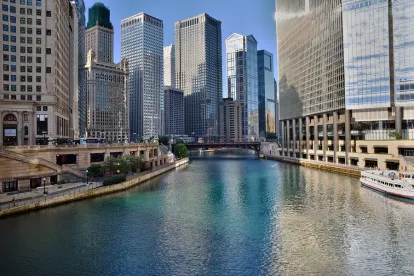The City of Chicago has enacted an anti-retaliation ordinance effective immediately aimed at protecting employees from retaliation if they refuse to work at an employer’s premises in compliance with a public health order issued by the City or the State of Illinois. The ordinance also protects employees from adverse employment actions if they do not report to work at the employer’s worksite due to direction from their healthcare provider to stay at home or to care for an individual who has been directed to stay at home.
The ordinance will remain in effect until the commissioner of Public Health determines that the threat posed by COVID-19 has diminished to the extent that the ordinance can be safely repealed.
While the ordinance does not mandate that employers allow otherwise healthy employees to refuse to work in a manner permitted under the public health orders issued by Illinois or Chicago, employees who refuse to work as a result of their employer’s failure to comply with public health requirements such as mandatory face coverings, social distancing requirements, and capacity limitations are protected from retaliation under the ordinance.
Who’s Covered
-
Covered employee: Subject to limited exceptions, a covered employee is defined as any employee who performs at least two hours of compensable work in the City of Chicago during any given two-week period.
-
Covered employer: A covered employer is defined as any individual, group, or entity who employs at least one covered employee and maintains a business facility within the geographic boundaries of the City of Chicago and/or is subject to one or more of Chicago’s licensing requirements.
What’s Prohibited
Covered employers are prohibited from taking adverse actions against a covered employee for obeying a public health order issued by the mayor of Chicago, the governor of Illinois, the Chicago Department of Public Health, or, in the case of items 2, 3 and 4 below, a treating healthcare provider, which requires the covered employee to:
-
Stay at home to minimize the transmission of COVID-19
-
Remain at home while experiencing COVID-19 symptoms or while sick with COVID-19
-
Obey a quarantine order issued to the covered employee
-
Obey an isolation order issued to the covered employee
-
Obey an order issued by the Commissioner of Health regarding duties of hospitals and other congregate facilities
In addition, covered employers cannot take any retaliatory action against a covered employee who is caring for an individual subject to an order requiring the individual to:
-
Stay at home to minimize the transmission of COVID-19
-
Remain at home while experiencing COVID-19 symptoms or while sick with COVID-19
-
Obey a quarantine order issued to the covered employee
Potential Employer Liability
Covered employers who violate the ordinance are subject to legal action brought by the commissioner of Business Affairs and Consumer Protection in an administrative hearing or a court of law. Covered employees who suffer an adverse employment action in violation of the ordinance may also bring a civil suit against a covered employer for (i) reinstatement; (ii) treble damages; (iii) other actual damages; and (iv) reasonable attorneys’ fees and costs.
Employer’s Affirmative Defense
A covered employer who violates the ordinance has an affirmative defense to its violation if it can establish that it relied on a reasonable interpretation of a public health order, and cured the violation within 30 days of being put on notice.



 />i
/>i
